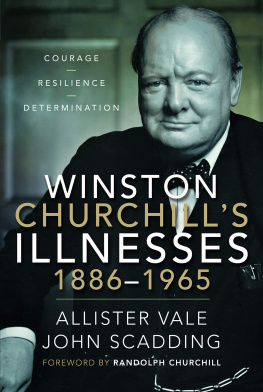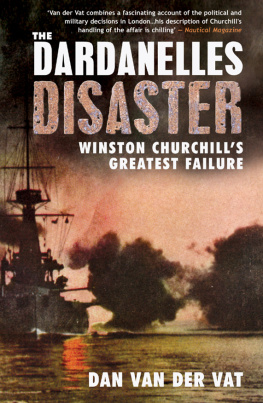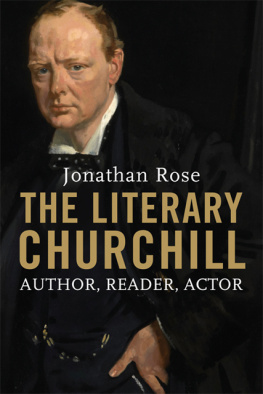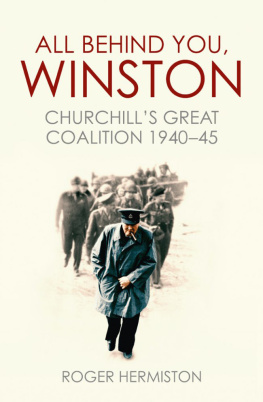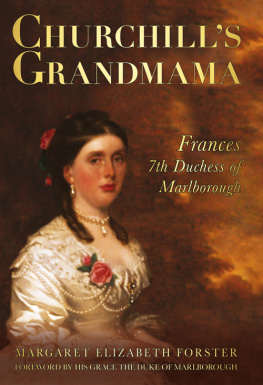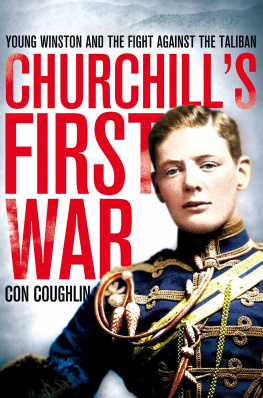Winston Churchills Illnesses, 18861965
Winston Churchills Illnesses 18861965
Courage, Resilience and Determination
Allister Vale and John Scadding
First published in Great Britain in 2020 by
Frontline Books
An imprint of
Pen & Sword Books Ltd
Yorkshire Philadelphia
Copyright Allister Vale and John Scadding 2020
ISBN 978 1 52678 949 5
ePUB ISBN 978 1 52678 950 1
Mobi ISBN 978 1 52678 951 8
The right of Allister Vale and John Scadding to be identified as Authors of this work has been asserted by them in accordance with the Copyright, Designs and Patents Act 1988.
A CIP catalogue record for this book is available from the British Library.
All rights reserved. No part of this book may be reproduced or transmitted in any form or by any means, electronic or mechanical including photocopying, recording or by any information storage and retrieval system, without permission from the Publisher in writing.
Pen & Sword Books Limited incorporates the imprints of Atlas, Archaeology, Aviation, Discovery, Family History, Fiction, History, Maritime, Military, Military Classics, Politics, Select, Transport, True Crime, Air World, Frontline Publishing, Leo Cooper, Remember When, Seaforth Publishing, The Praetorian Press, Wharncliffe Local History, Wharncliffe Transport, Wharncliffe True Crime and White Owl.
For a complete list of Pen & Sword titles please contact
PEN & SWORD BOOKS LIMITED
47 Church Street, Barnsley, South Yorkshire, S70 2AS, England
E-mail:
Website: www.pen-and-sword.co.uk
Or
PEN AND SWORD BOOKS
1950 Lawrence Rd, Havertown, PA 19083, USA
E-mail:
Website: www.penandswordbooks.com
Foreword
M y great-grandfather suffered bouts of poor health. After obtaining access to several closed medical archives, as well as unearthing some that were unknown previously, Allister Vale and John Scadding have written the definitive account of Churchills illnesses. Their expertise as physicians has been brought to bear on the interpretation of the evidence, much of it available for the first time. I would like to pay tribute to them for their dedication and determination to spend thousands of hours setting the history of Churchills medical challenges into modern day context.
They have already published some of their meticulous research on his illnesses in the medical press. That these papers have met with acclaim in the medical community does not surprise me; I have read them all with great interest too. As a result of their research the authors have corrected many repeatedly perpetuated errors. For example, we now know that Churchill did not suffer a heart attack in Washington over Christmas and New Year in 1941. The ECG taken shortly after the event confirms this and is published for the first time in the book with the detailed notes of Sir John Parkinson, Churchills cardiologist.
Similarly, there has always been much talk about Churchills black dog (although Churchill only ever mentioned it in one letter, in 1911). In our family we always felt that he was referring to his personal low moments unsurprising, perhaps, given the great stress and pressure he often worked under. He was fortunate to be supported by his wife, Clementine, to whom he was devoted. Their correspondence shows the extraordinary support that she gave him. At times Churchill would cry, and he could be emotional in both happiness and sorrow. But it was never felt in the family that he suffered from clinical depression and this volume confirms that view.
Helpfully the authors have placed each illness in its historical setting and have cited multiple non-medical sources to support their conclusions regarding the impact of each illness on Churchill, his family and colleagues and on his work output.
What picture emerges of Churchill during these illnesses? That he was seriously ill from pneumonia on several occasions and had repeated strokes is now not in doubt. It is remarkable that he was able to continue to function as Prime Minister for two terms after suffering repeated illness at a time when investigation and treatment options were limited. The care Churchill received from more than thirty eminent physicians and surgeons (their short biographies are included) and from carefully chosen nursing staff was exemplary.
Allister Vale and John Scadding provide a rich picture of the Man his fears, his frustration at being ill, his insights, his requests for detailed medical information, his penetrating intelligence and his enduring wit. But above all, his reaction to serious illness demonstrated his personal courage, resilience, his sense of duty and his determination to continue to serve in high office. This is perhaps best manifested by his ability to continue during many stroke episodes, which was truly remarkable. For even when those around him predicted that he was finished, he bounced back again to fight another day. As Lord Moran, his personal physician from 1940, concluded: Winston has nine lives!
Vale and Scadding have produced a well-researched and highly readable book that will be essential reading for Churchillians and other historians of the period, as it provides so much new material and many new insights. Clinicians and general readers alike who wish to understand the impact of illness on arguably the greatest leader of the twentieth century will also find the book of great interest.
Randolph Churchill
Crockham Hill
July 2020
Acknowledgements
W e could not have written this book without access to the medical and nursing notes written by colleagues.
By courtesy of Jamie Wilson, the present Lord Moran, we have had access to his grandfathers original papers (PP/CMW/F/6/1-5) in the Library at the Wellcome Collection and permission to cite unpublished parts of Lord Morans medical records. We are also grateful to Lord Moran and Little, Brown Book Group for allowing us to cite substantial parts of his grandfathers book, Winston Churchill: The Struggle for Survival.
We are most grateful to Toni Hardy, Collections Information Analyst, at the Library at the Wellcome Collection, for granting permission for us to access Dr Thomas Hunts previously closed medical records (GC/46/D.5) relating to Sir Winston Churchill.
The Royal College of Physicians holds the medical records of Dr Davis Evan Bedford CBE, Lord Brain and Sir John Parkinson. Pamela Forde, Archive Manager at the College, facilitated access to these records with the permission of Professor Dame Jane Dacre PRCP. Elva Carey (daughter) and John Phillips (grandson) kindly granted permission for us to cite Sir John Parkinsons medical reports on Sir Winston Churchill, and generously provided a family photograph of Sir John. Michael Brain DM FRCP, Lord Brains son, allowed us to quote verbatim from his fathers clinical records, which make up a substantial part of several chapters; we are in his debt.


